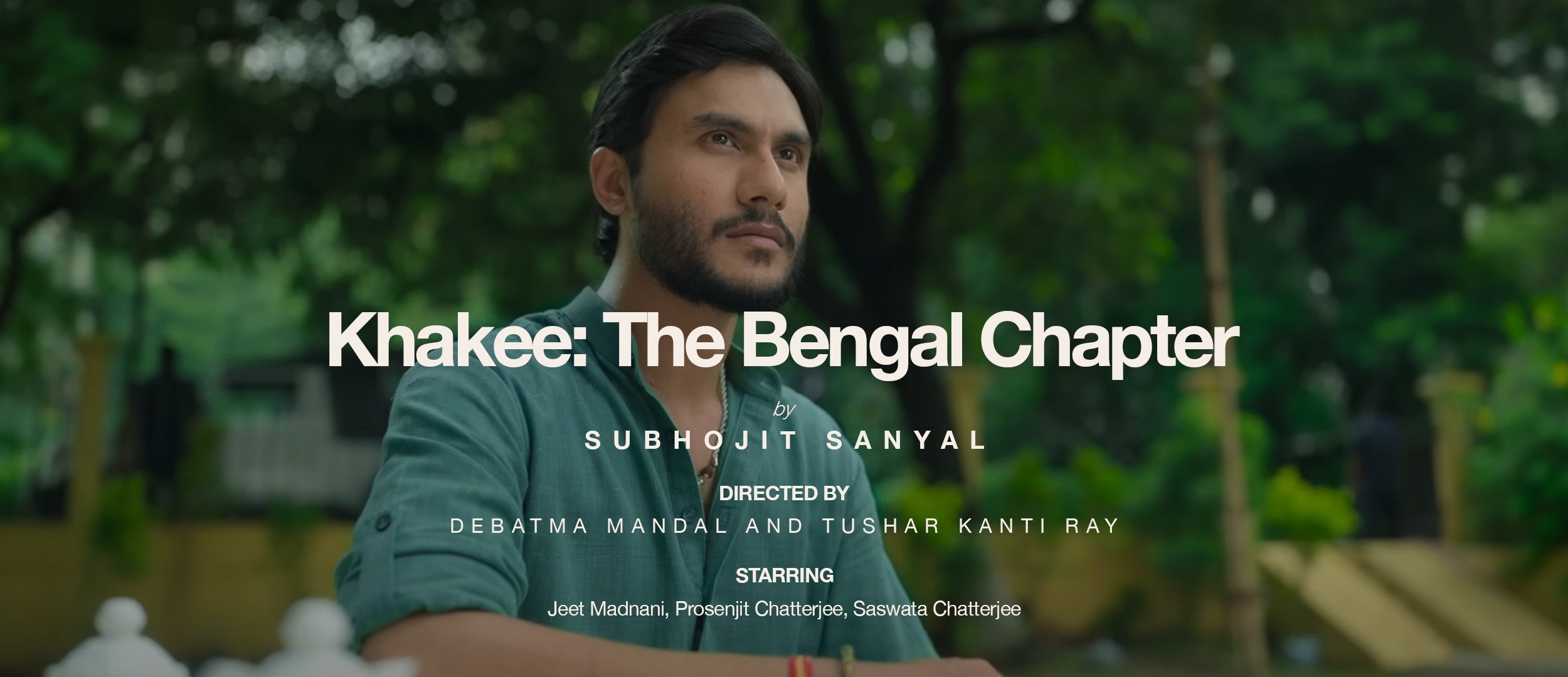

When I saw the first trailer I was already in love with the concept. A season to season trail across the country, going state to state and bringing to the grand stage of Netflix, a re-imagined and epic battle of cop and criminal — what’s there not to like?
And thus when after Khakee: The Bihar Chapter we cross into the neighbouring state of Bengal, expectations were already high. Not just because of the standalone season we witnessed in Bihar in 2022, but also because of Neeraj Pandey, the genius at the helm of this entire Khakee enterprise. From A Wednesday to Special 26! to Baby and the Dhoni biopic, Pandey has a solid track record of both commercial and critical success. Anything that comes out from his stable is naturally treated with respect and appreciation. And in this particular case, his earlier issue of the Bihar chapter had already cemented the Khakee franchise in popular imagination.
Also, there is no doubt an element of parochial pride in seeing the top-rung actors of Bangla cinema finally getting their spotlight under the Netflix sun in a popular pan-Indian franchise. Actors like Prosenjit Chatterjee, Parambrata Chatterjee, Saswata Chatterjee (too many Chatterjees suddenly) have already tasted national success in various series and films (Bob Biswas from Kahaani for Saswata as example) — and now we can also add Jeet to the entire melee. And with more star power in the form of Chitrangada Singh and Ritwik Bhowmik (from Bandish Bandits fame) cover off the top echelon in the series.
This is where the story comes in. These things usually tend to end up like a Jack Reacher novel — same, but different. And this is not a knock on the Jack Reacher franchise, particularly not from me personally. It is the best form of long-format storytelling. Something that a series like Khakee could definitely benefit from. Going from state to state, the basic tenets of storytelling is most likely going to remain the same, but with different stories. The Bengal Chapter is also no different on that front.
More akin to Bengal politics, particularly in the near past, Khakee: The Bengal Chapter shoots into the politico–criminal nexus that grips the state in fear and punishment. And the entire season is shouldered on the shoulders of a mistaken kidnapping that never should have been, by people who really have nothing to do with the principal characters in play. This allows the single season run of the Bengal chapter to play out in a proper circle (considering how there won’t be any second season in this state anytime soon).
But that does not take away from the fact that Khakee: The Bengal Chapter is an utterly predictable ride. The mistaken kidnapping and the flow of events that follows could have allowed for a new approach to the genre; but alas it just turns out to be the same old story of misguided ambition and never-ending doom. You just know exactly how everything is going to end, right up to when the last piece drops. The disappointment was real.
And yet, I watched it all. Every episode. Sometimes through the night. Because, despite its predictability, Khakee: The Bengal Chapter is made with polish. It is made well. It is slick, well-shot, and the performances never drop the ball. There’s something comforting about watching a familiar structure unfold when it’s done competently. It’s like biryani You know you want same-old. Not some biryani with couscous and a hint of vanilla and papaya chutney. Okay, that sounds disgusting.
And what keeps the experience alive, at least for someone like me, is the presence of these actors who have been a part of my growing milieu. Seeing Prosenjit in a role that leans into restraint than melodrama is a quiet revelation. Parambrata slips into his part with ease. He usually does. Saswata delivers, as usual, you wish he’d have been there for longer. And then there’s Jeet, stepping out of his mass-hero avatar, and going even more massy—and he totally pulls it off. It’s this familiarity, this sense of watching people you’ve grown up with on a bigger stage, that lends the series a kind of feel-good value for the likes of me.
But good nostalgia is not the same as great storytelling. One wishes the writing had more teeth. One wishes it said more, took more risks. Bengal, with all its complexities, deserved a chapter that unsettled as much as it entertained. Instead, we got a crime drama that plays by the book.
So yes, watch it. Binge it, even. Just don’t expect it to linger in your mind. This isn’t a story that haunts—it’s one that merely hums along, and then fades.
